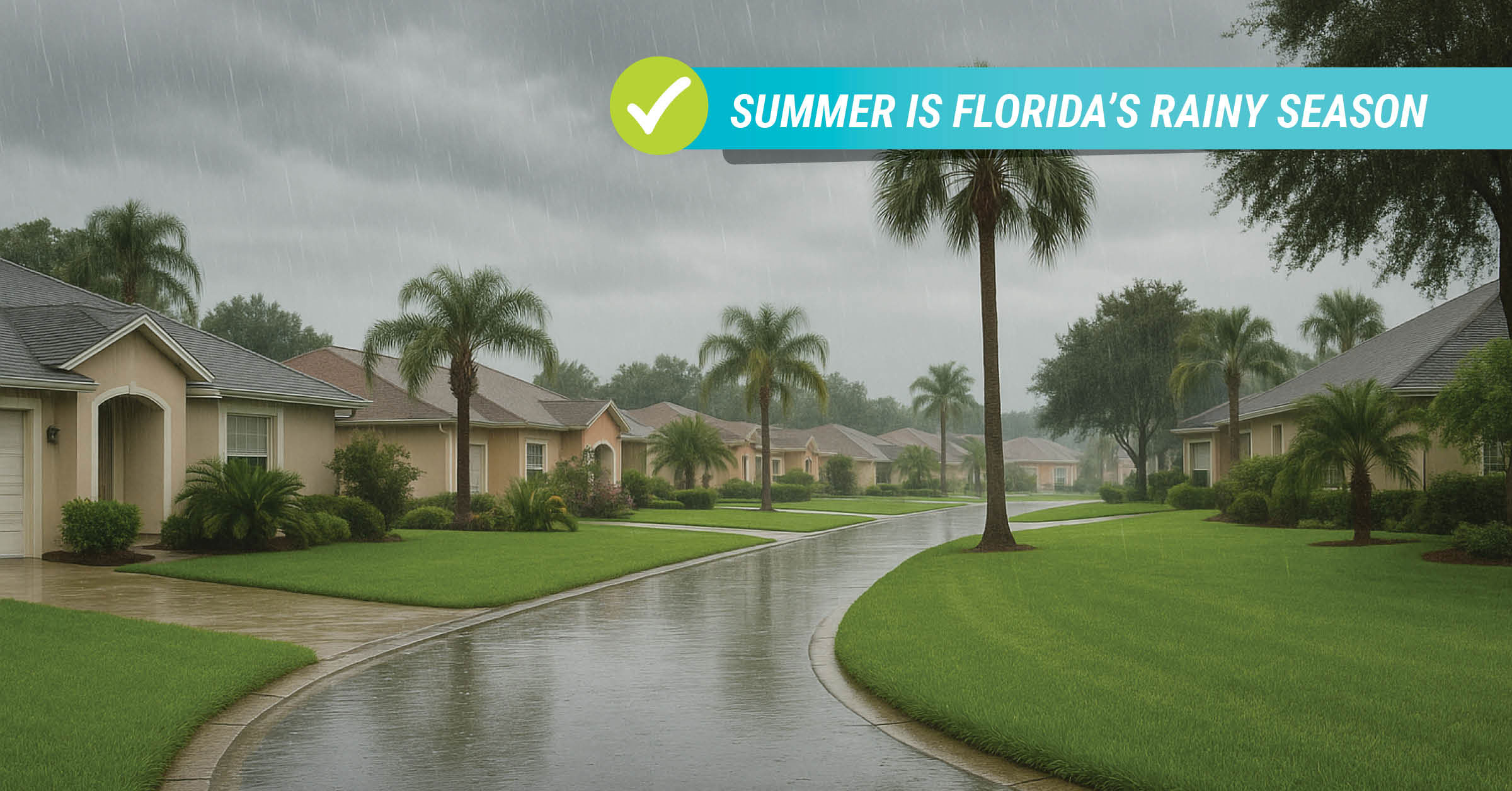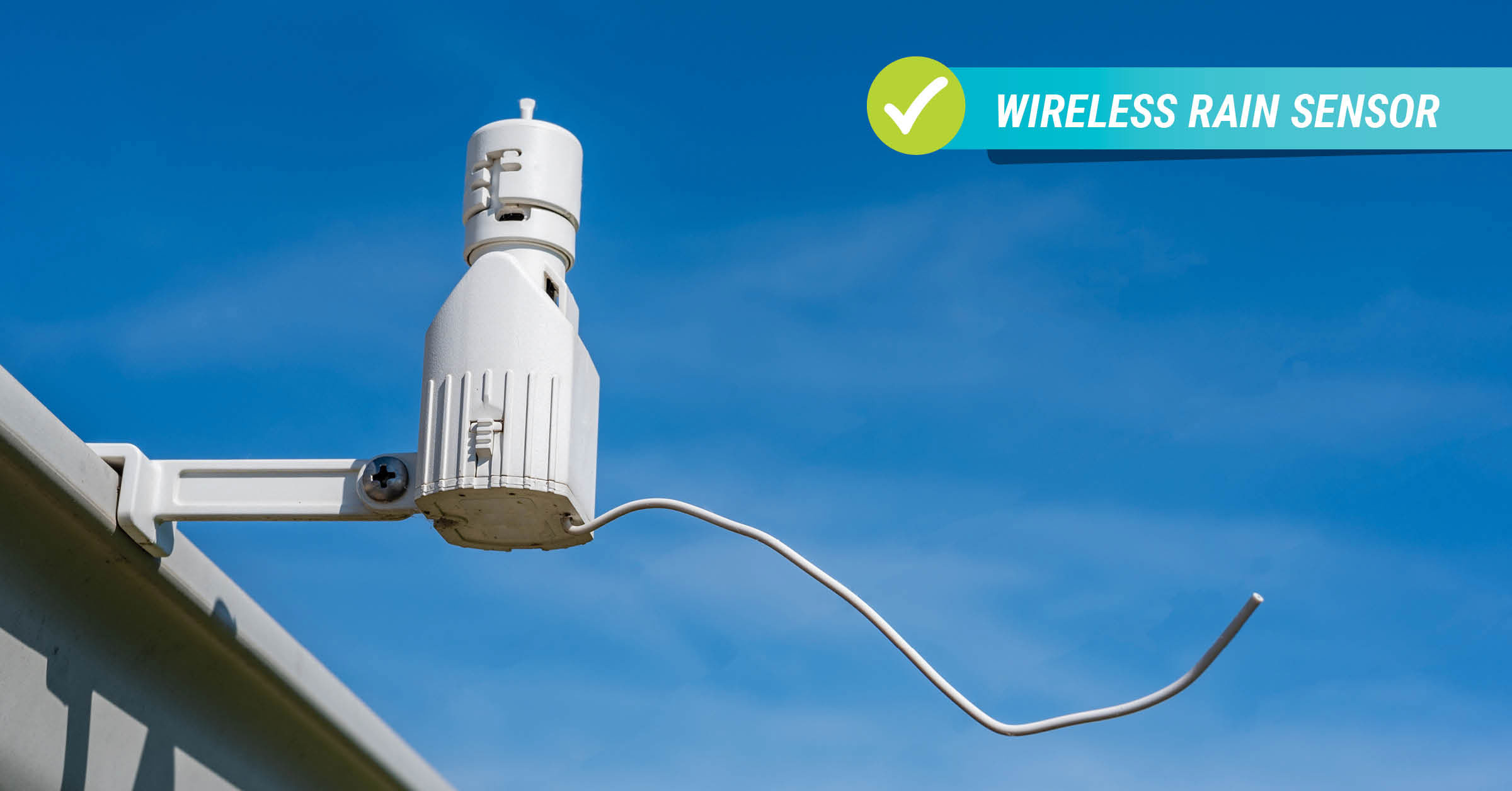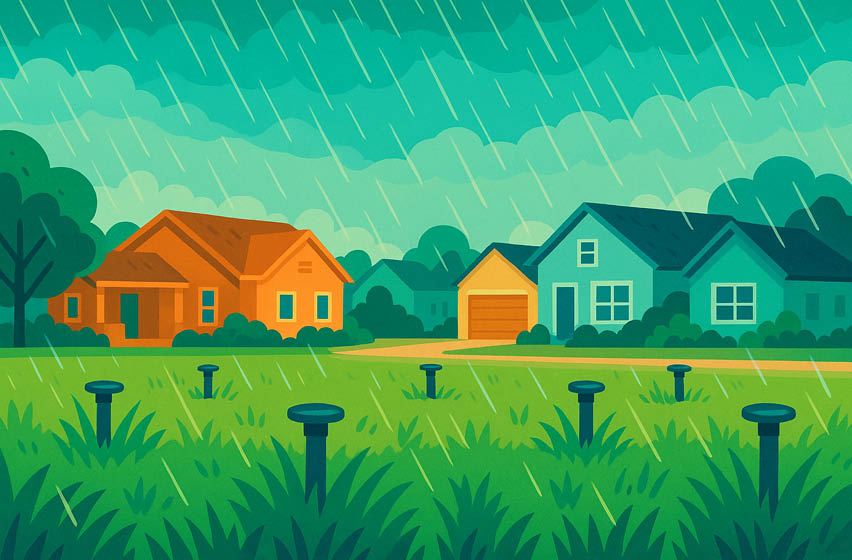Let the Rain Do the Work: Why You Can Turn Off Your Irrigation This Summer
Florida’s summer rains are a natural blessing for your lawn—and a huge opportunity to save water, money, and the Indian River Lagoon. From June through September, many lawns in Brevard County don’t need any supplemental watering. With frequent afternoon downpours and high humidity, nature can do the job for you.

Between June and September, Brevard County receives an average of 6 to 7 inches of rain per month (NOAA, 2024).
Yet many residents keep their irrigation systems running out of routine, leading to overwatering that not only wastes water and money, but also harms the Indian River Lagoon. When sprinklers run before, during, or after rainfall, the excess water flows over lawns and pavement, carrying fertilizers, grass clippings, pet waste, and other pollutants into storm drains.
Storm drains don’t lead to treatment plants; they flow directly into the stormwater system and the Indian River Lagoon. The nutrient-rich runoff from overwatered lawns can fuel algae blooms, which block sunlight, kill fish, and smother the seagrass that manatees, sea turtles, and countless other species depend on.
The good news? Turning off your irrigation system during the rainy season is a simple, no-cost action that protects your lawn, your wallet, and one of Florida’s treasured ecosystems.
Why Turning Off Irrigation Matters
Turning off your irrigation system during the rainy season:
- Reduces stormwater runoff and nutrient loading
- Prevents overwatering, which weakens grass roots and increases fungus and pests
- Saves you money on your utility bill
- Protects the lagoon’s water quality and marine life
“Most Florida lawns need only 0.5 to 0.75 inches of water twice a week, and even less during the rainy season.” — UF/IFAS Extension, 2020
Lagoon-Friendly Tips for Rainy Season Irrigation:
- Turn off your irrigation system unless there’s a prolonged dry spell.
- Install a rain sensor (it’s required by Florida law!) to automatically pause watering during rainfall.
- Use a rain gauge to measure rainfall—if you get ½ to ¾ inch or more, skip watering for at least two days.
- Adjust your irrigation timer or set it to manual mode for summer months.
- Inspect your sprinkler heads monthly for misalignment, leaks, or spraying onto pavement.

Recommended Tools for Smarter Watering
- Rain Sensor: Automatically pauses irrigation during rain events
- Smart Irrigation Controller: Adjusts watering based on weather forecasts
- Soil Moisture Sensor: Detects when your soil is dry enough to need water
- Rain Barrel: Captures stormwater for use in gardens and flowerbeds

Real Impact: Protecting the Indian River Lagoon
The Indian River Lagoon is home to thousands of species of plants and animals, making it one of the most biodiverse estuaries in North America. Reducing excess irrigation during the rainy season is an easy and effective way to cut pollution at the source.
By skipping just one unnecessary watering a week, your household could save over 1,000 gallons of water. (EPA WaterSense)
Let the rain do the work—and help protect our lagoon in the process. Join your neighbors in making the switch to smarter watering this summer.
References
- UF/IFAS Extension. (2020). Watering Your Florida Lawn. https://edis.ifas.ufl.edu/publication/LH025
- NOAA National Weather Service. (2024). Melbourne, FL Climate Data. https://www.weather.gov/mlb/
- EPA WaterSense. (2023). Watering Wisely. https://www.epa.gov/watersense/outdoor
- Indian River Lagoon Species Inventory. (2025). Indian River Lagoon Species Inventory. Smithsonian Marine Station. https://irlspecies.org/















